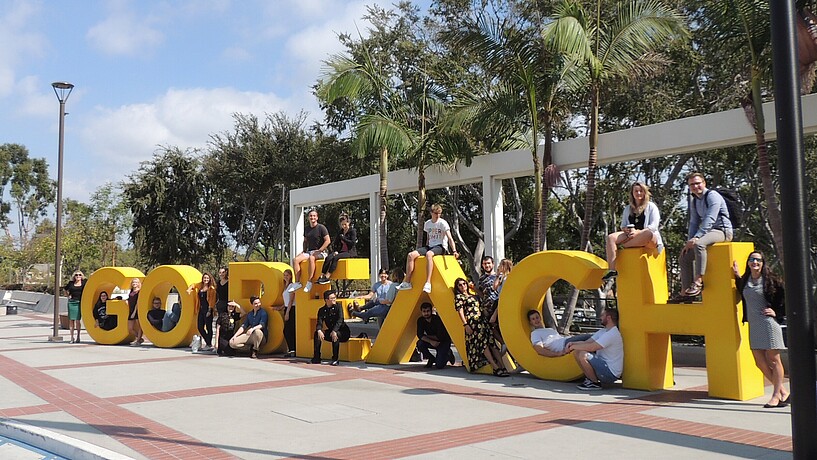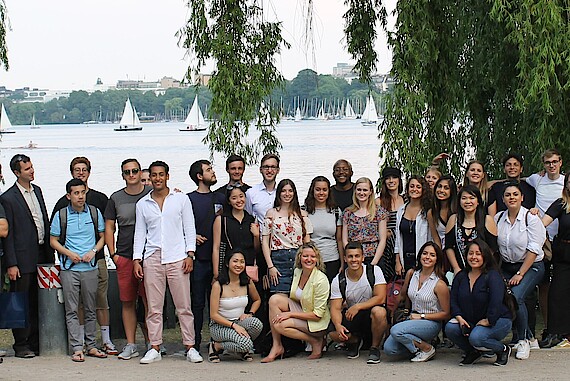Short programmes are becoming increasingly popular with US students, as they find semester-long programmes difficult to incorporate into their studies and personal situation. Family and work commitments or personal budgets often mean that students feel they cannot be abroad for a longer period of time. In 2020 student exchange became even more difficult with the corona pandemic stopping travel to and from the US. This year, HAW Hamburg and California State University, Long Beach (CSULB) celebrate their 25-year old short programme, the German-American International Business Workshop. And corona hasn’t put a stop to it. As in 2020, the workshop in 2021 is taking place in an extended online format with mixed student teams across the Atlantic.
A continually evolving format
The idea for the workshop came from Joachim Kellner, professor emeritus for marketing at HAW Hamburg, Terrence Witkowski, professor emeritus for marketing in the CSULB College of Business and the late Wilm Pelters, CSULB professor for German studies. Starting in 1996, the workshop focused on marketing topics and involved HAW Hamburg professor emeritus, Horst Seider and marketing professor Annette Corves. In the past eight years the focus has moved to supply chain, international trade and management topics, as new faculty at both universities took over the coordination of the programme. Professor Natalia Ribberink now heads the workshop with her team on the Hamburg side, working with CSULB professors Mark Washburn, Kenji Klein and Ming Chen on content and teaching.
While the business focus has changed over the years, the format remained up to 2019 more or less the same. Prior to the workshop students are involved in a five to six-week research phase in preparation for the joint week together. They are then placed in mixed US-German teams. The in-person workshop consists of lectures, student projects in mixed international teams and company visits – in May/June in Hamburg and in October in Long Beach. After the workshop, students submit a written report about their experiences.
Ming Chen, management professor at CSULB, believes the workshop plays an important role in student education, particularly for first-generation college students: “I think the most important thing students are getting out of this workshop is an international perspective. It enables them to see how things are done differently outside the US. International education is not about learning concepts from the book. It’s about learning by doing. In my opinion, the format of this workshop perfectly achieves this purpose.” Another important aspect of this workshop is team-building. Sabine Reddy, Associate Dean for Administration in the College of Business at CSULB, also taught in the early years of the workshop and helped build connections between the US and her home country. She adds: “The workshop creates a cross-cultural encounter, preparing students for work in global teams. It also gives them a first-hand cultural encounter with local students and businesses.”


